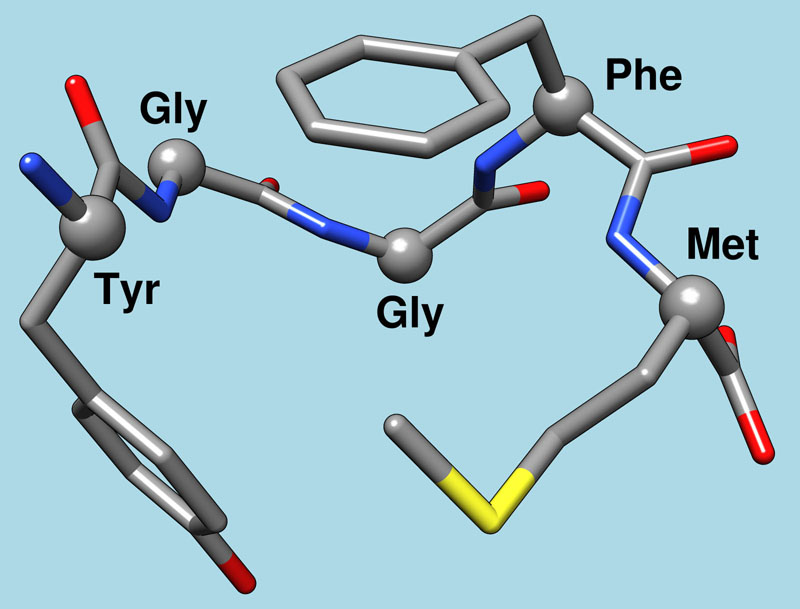Neurotransmitters
- The non-essential amino acid glutamate is an important excitatory neurotransmitter that plays the principal role in neural activation.
- Gamma-aminobutyric acid is the chief inhibitory neurotransmitter in the mammalian central nervous system.
- An important neurotransmitter in the peripheral nervous system, inside the brain acetylcholine functions as a neuromodulator, altering the way other brain structures process information.
- The neurotransmitter norepinephrine is synthesized and released by the central nervous system and also by the sympathetic nervous system. Its basic function is to mobilize the brain and body for action.
- The brain includes several distinct systems utilizing the neurotransmitter dopamine such as reward-motivated behavior, motor control and also control of the release of various hormones.
- The functions of the monoamine neurotransmitter serotonin include the regulation of mood, appetite, and sleep. It also has some cognitive functions, including memory and learning.
- Anandamide is an essential fatty acid playing a role in the regulation of feeding behavior, and the neural generation of motivation and pleasure.
- Neuromodulation is the process by which a given neuron uses one or more neurotransmitters, such as dopamine, serotonin, acetylcholine, histamine, and norepinephrine, diffused through a large area of the nervous system, to regulate diverse populations of neurons.
- Neuropeptides are small protein-like molecules used by neurons to communicate with each other. They are involved in a wide range of brain functions, including analgesia, reward, food intake, metabolism, reproduction, social behaviors, learning and memory.
- Endorphins are endogenous opioid neuropeptides, which bind to mu opioid receptors. They are produced by the central nervous system and pituitary gland.
- Enkephalins are pentapeptides involved in regulating nociception in the body. They bind to delta opioid receptors.
